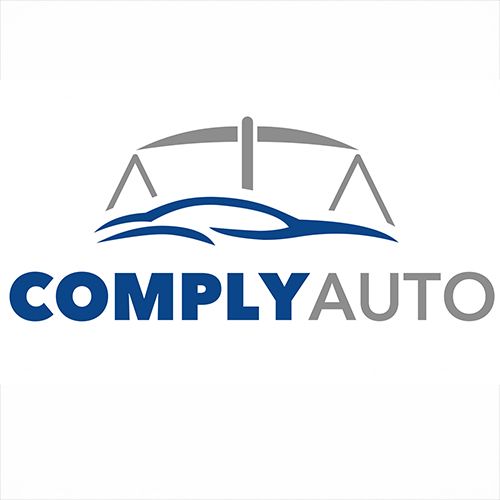A wave of pending tariffs on imported vehicles and parts is reshaping pricing dynamics across the automotive industry. Some OEMs have announced they are adjusting MSRPs, supply chains are shifting, and inventory pressure is building.
In the middle of it all, dealers face a critical challenge: how to explain potentially rising prices without making legally risky claims.
It’s tempting to point to tariffs since tariffs are in the headlines and on customers’ minds. Not only is this a potentially risky strategy from a public relations perspective, it also raises potential regulatory risks for the dealership. Basically, unless a dealership knows that a specific vehicle’s price increase is directly tied to a tariff, advertising a price increase based on “tariffs” can trigger a deceptive advertising claim under Section 5 of the FTC Act and various state advertising laws.
Advertising Claims and Attribution
When vehicle prices rise, dealerships often feel compelled to explain why. And in a high-tariff environment, some are tempted to attribute a price increase or a market adjustment to a tariff. That’s where trouble begins.
According to the FTC, price advertising must be truthful, non-deceptive and substantiated. Any claim made in an advertisement, including the reason for a price change, must be truthful, not misleading and supported by evidence. States also have similar requirements for advertising. For example, under the Maryland Consumer Protection Act, a dealer may not falsely attribute a price increase to tariffs if the claim misleads consumers or omits material facts, such as the absence of any actual tariff-related cost increase.
Here’s the takeaway: If your dealership states or implies that a vehicle is more expensive because of a government-imposed tariff, you must be able to prove that the tariff directly affected the cost of that specific vehicle. General market conditions, assumptions or headlines are not enough.
What This Means for Dealerships
If you’re considering messaging like “prices adjusted due to tariffs” in your showroom, on your website or in digital ads: pause. These claims may seem harmless, but they raise significant regulatory and legal red flags.
Tariff Messaging Must Be Substantiated
Dealers are free to raise or lower prices in response to supply, demand or margin pressure. But the FTC and state AGs expect substantiation for any claim about why a price changed. That means you need to be able to show a direct relationship between a tariff and the price increase.
Saying “this vehicle’s price increased due to tariffs” implies that you know the cost impact. If the vehicle wasn’t subject to a tariff, or if the price increase was due to something else, that claim becomes misleading.
NOTE, HOWEVER — many state laws strictly regulate dealer fees, or “doc” fees and these fees may be the only type of fee a dealer may be legally permitted to add to a vehicle price. Adding a “tariff fee” — even if substantiated — may implicate these state fee regulations, and dealers should exercise caution before adding this or any other fee to the price of a vehicle.
Remember — “Advertisements” Include More Than Just Websites
The definition of “advertisement” under federal (and most state) law is so broad that basically any discussion of a vehicle or a price with a consumer can be considered an advertisement. That includes vehicle display pages, email price quotes, social media and virtually any other form of consumer communication.
Remember, even statements made verbally to consumers about tariffs (or any other material price term) could be deemed deceptive if inaccurate and substantiated.
Made in the USA Claims: A High Standard
One related potential issue in this context are claims about domestic manufacture of vehicles — whether related to tariffs directly or not. Some OEMs and dealers may lean into patriotic messaging which highlights vehicles as “Made in America.” But, the FTC’s “Made in the USA” standard is strict: To lawfully make an unqualified U.S.-origin claim, a product must be “all or virtually all” made in the United States. That includes parts, processing and assembly. Final assembly alone isn’t enough if key components come from abroad. Dealers repeating or amplifying origin claims should verify the claim’s accuracy. False U.S.-origin claims can violate Section 5 of the FTC Act and lead to enforcement actions, even if the original claim started with the manufacturer. For a deeper dive on this issue, see ComplyAuto’s guide, “Navigating Made in the USA Claims in Dealership Advertising.”
Action Items for Dealerships
To navigate these risks, dealerships should:
- Review all advertising content to ensure no price increase is attributed to tariffs unless verifiably true (and consistent with state dealer fee laws).
- Train staff to avoid speculative or generalized pricing explanations tied to tariffs or government action, or conversely, any promises about “Made in the USA” or domestic content, in the context of tariffs or otherwise.
- Audit website, social and BDC communications to ensure FTC-compliant language.
- Avoid phrases like “due to tariffs,” “government-mandated,” “new surcharge” or “made in America,” unless legally accurate.
Remember, advertising law hinges on consumer perception. If a customer could reasonably believe that a price you are advertising or charging is higher because of a tariff, and that’s not factually true, you’ve got a potential compliance problem.
Price freely, but message carefully.
ComplyAuto Can Help
ComplyAuto offers the tools and guidance dealerships need to stay compliant in shifting regulatory environments. From real-time ad review and policy vetting to F&I deal accuracy and staff training, we help you stay out of trouble while focusing on your bottom line.
With compliance automation, policy insight and cutting-edge risk detection like Guardian, along with powerful tools like DealCheck AI, ComplyAuto gives you peace of mind and the confidence to price it right. Learn more and schedule a Full Product Demonstration today.








